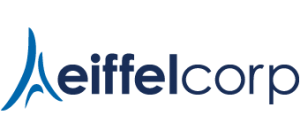
There is a constant growth of online learning in Africa and the world at large, especially in the past two years. This, therefore, poses a need to meet the constant growth to enable easy access to eLearning.
As a developing continent, Africa still faces major issues as far as online learning is concerned. These issues include:
- Poor internet connection
- Lack of ICT skills
- Lack of training for facilitators
- Digital illiteracy
- Technological infrastructure, etc.
The importance of eLearning becomes even greater when we look at the economical issues faced and the advantages that come with online learning. Let’s take a look at the advantages of eLearning and how they can encourage solving the challenges faced.
Advantages of e-learning:
- Flexibility – online learning allows for flexibility such that, one is able to find part-time employment while studying.
- Self-governance – trained and disciplined students are more likely to do well in the workplace.
- Cost-effective – online learning produces fairly adequate results without costing a lot of money. (Traveling costs to campus, hardcopy books, student residence, etc)
- Improved technical skills – these are critical skills to possess, especially in the workplace.
- Many institutions have been trying to solve the challenge of access to online learning since the beginning of Covid-19. They do this by providing free data for students and helping those in need with laptops. Systems have also been set up in the space where learning takes place. However, since this mode of learning is still new for some, a lot of changes and adaptations have to happen.
These changes may typically mean finding new ways of presenting lectures effectively. An example of an effective lecture could be keeping a lesson short. It’s commonly known that too much screen time could decrease the attention span, so keeping lectures short allows for students to remain focused. Lecturers are also encouraged to record lessons. While the focus is on keeping classes short, recorded lectures allow for students to revisit lessons whenever there is a need for revision.
The home for many lectures that take place online is the Learning Management System or LMS software. Among other functions, the LMS’s focus is to deliver learning online, by providing a platform where learner enrolment, administration, documentation, tracking, etc could take place. It basically serves as a portal where students can access important information in relation to their course. Instructors are also able to track and monitor the students’ performance to ensure that each one of them meets their learning objectives.
So how then do we deal with the challenges associated with the LMS and accessing online learning in general? “Capitalise on Digital Tools!” This means finding the right LMS for your institution, providing training that will enable better use of the LMS and as already mentioned, institutions have partnered with some of the best network providers to give their students free data and laptops. For the digital illiteracy challenge, computer modules are taught in the first year of varsity.
While Covid-19 has caused us to move forward, it also exposed many gaps in our education system and highlighted the digital divide. Rather than focusing on the gaps, perhaps we should focus on what can we do in the future to improve on what happened during Covid-19. Blended learning is most likely the way of the future. The focus should thus be on what we need to improve on online learning in the future, to cater to all students to ensure access to electricity, a conducive learning environment and the internet. Perhaps the solution lies in on-campus support for online learning. With the blended learning approach, this is possible – not cutting out face-to-face teaching, but applying both face-to-face and online learning appropriately to ensure optimal outcomes.
How we can help?
As recognised AWS Education partners in EdTech, Digikamva LMS is hosted on the leading cloud platform, Amazon Web Services (AWS). Reach out to learn how we can support access to online learning with the support of Digikamva LMS and Amazon Web Services. Visit: www.eiffelcorp.co.za/digikamva-lms for more information.
References:
- https://www.teachercreatedmaterials.com/blog/article/overcome-challenges-distance-learning/
- https://www.edutopia.org/article/8-evidence-based-tips-make-your-lectures-more-engaging-and-memorable?fbclid=IwAR1vSaTuSEgkVfYF2qcCXudiD4xECjPZ5yg0nedbYisA3Oi72PU5joFLYz4



